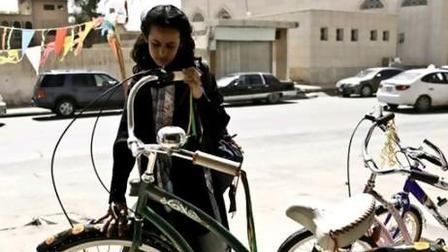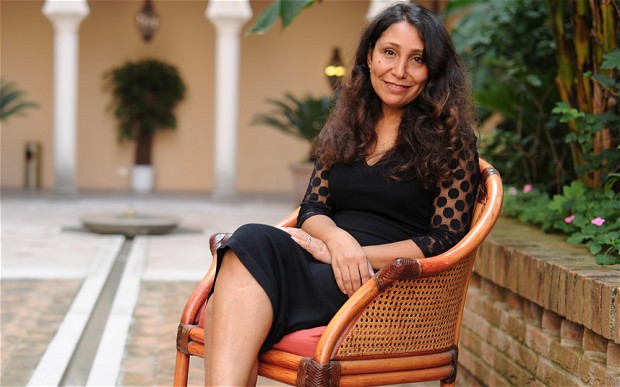David here with words on a milestone in film history showing at the 56th BFI London Film Festival.
 Waad Mohammad as 'Wadjda'
Waad Mohammad as 'Wadjda'
Miracles do happen. Haifaa Al-Mansour’s debut feature Wadjda is one of them. The first film to be shot entirely in Saudi Arabia, where movie theatres are illegal, Wadjda is also the first film ever made by a Saudi woman. As the film shows, gender equality is still non-existent in Saudi Arabia – Reem Abdullah’s working mother relies on a driver to ferry her to work every day and Wadjda (Waad Mohammad) is omitted from her father’s family tree. Despite these socio-political outrages, Wadjda is never aggressive or dogmatic about getting any agenda across to its audience. Focusing its energies on the “spunky” young heroine of the title, Wadjda stitches the injustice and sexism that’s at the heart of Saudi Arabian society into the larger canvas of Wadjda’s rebellious spirit and complex engagement with religion. [Continue...]
Wadjda’s eye is caught by a handsome bicycle put on sale outside a local toyshop. Longing to race the neighbour boy Abdullah (Abdullrahman Al Gohani), she enters the Qur’an competition at school, to the surprise of her headmistress Ms. Hussa (Ahd). Ms. Hussa keeps close, strict tabs on her students, scurrying them out of the way of watching workmen and expelling a student who enlists Wadjda to take a note to her “brother” outside the school gates. Wadjda’s father isn’t so easily reached – her mother spends her time cooking piles of dishes for a husband who seems to use the house as an occasional office and may be looking for a second wife.
Wadjda never makes this sexism and neglect of women a pitiful state of affairs. Wadjda’s mother and particularly Ms. Hussa have their numerous faults, but they also present Wadjda with strong female role models who, in diverse and progressive ways, conflict with the dominant mode of society. Wadjda’s rebellious spirit is something that alarms both women, but it also derives from them, from their pain and their restrictions on Wadjda. The film recalls other youthful classics like The 400 Blows and Satyajit Ray’s Aparajito in the spry, impetuous way it approaches these ambiguities. Al-Mansour is quietly careful to never make Wadjda’s relationship with the Qur’an part of the mocked antiquity. Wadjda reads the Qur’an in pursuit of the competition prize money, and even purchases a console game to guide her through it, but the expertly crafted competition scene presents a tense confusion over how she truly relates to her religion.
 Haifaa Al Mansour, the first woman to ever direct a movie in Saudi Arabia
Haifaa Al Mansour, the first woman to ever direct a movie in Saudi Arabia
While it’s unfolding, Wadjda is a pure joy to watch, beaming brightly with naturalistic, empathic performers and a brisk, conventionally satisfying narrative. It’s on reflection that the film’s greatest triumphs emerge. Wadjda casually but reasonably re-evaluates the relationship of women and girls to Saudi Arabian society, religion, oppression, consumerism, and the numerous others isms that dictate their lives. That it does this so deftly through the simple story of a young girl wanting after a bicycle is Al-Mansour’s greatest triumph. She has not only made a revolutionary film, she’s made a great one. (A-)